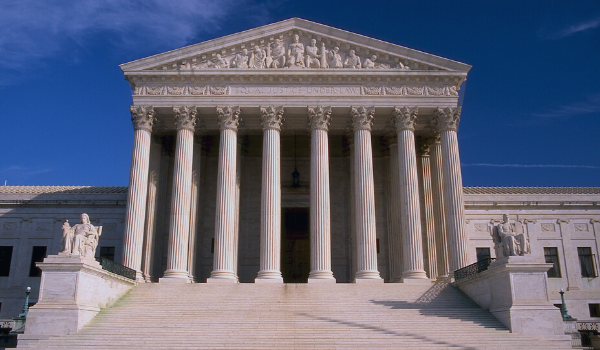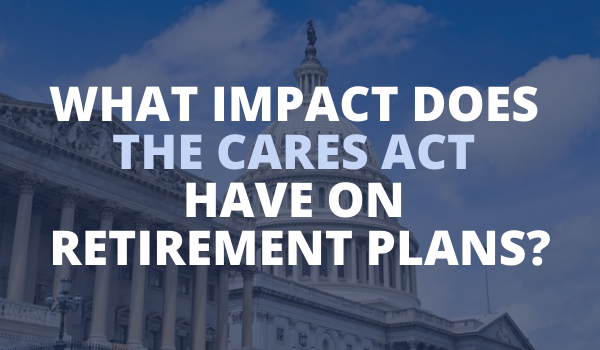On June 19, 2020, the IRS issued Notice 2020-50, expanding the relief for Coronavirus-Related Distributions (CRDs) from qualified retirement plans provided by the Coronavirus Aid, Relief, and Economic Security Act (CARES Act).
What are Coronavirus-Related Distributions?
Section 2202(a) of the CARES Act provides special tax treatment for certain distributions from qualified retirement plans. Generally, distributions from a qualified retirement plan are taxable in the year in which they are made and are also subject to an additional tax of ten percent (10%), if the participant is younger than 59½ years old. The CARES Act provides that a CRD may be included in the recipient’s taxable income ratably over a three-year period, rather than entirely in the year of distribution. In addition, the CARES Act exempts CRDs from the 10% tax on early distribution. So, what is a CRD?
A Coronavirus-Related Distribution is essentially any distribution from a qualified retirement plan made to a “Qualified Individual” on or before December 31, 2020.
Who is a Qualified Individual?
Section 2202(a)(4) of the CARES Act defines a “Qualified Individual” as any individual:
- who is diagnosed with the virus SARS-CoV-2 or with coronavirus disease 19 (referred to collectively as COVID-19) by a test approved by the CDC;
- whose spouse or dependent is diagnosed with COVID-19; or
- who experiences adverse financial consequences as a result of:
- being quarantined, furloughed or laid off, or having work hours reduced due to COVID-19;
- being unable to work to lack of childcare; or
- the closing or reduction of hours of a business owned or operated by the individual due to COVID-19.
At the time that the CARES Act was passed, some observers noted that the definition of Qualified Individual was incomplete. Certain persons who could be adversely affected by the COVID-19 pandemic were left out of the definition. For example, what about a person whose spouse was unable to work due to lack of childcare?
Notice 2020-50 to the Rescue!
In Notice 2020-50, the IRS expands the group of persons who are Qualified Individuals and can take advantage of the provisions of the CARES Act. Notice 2020-50 provides that a Qualified Individual includes an individual who experiences adverse financial consequences as a result of:
- the individual having a reduction in pay (or self-employment income) due to COVID-19 or having a job offer rescinded or start date for a job delayed due to COVID-19;
- the individual’s spouse of a member of the individual’s household being quarantined, furloughed or laid off, or having work hours reduced due to COVID-19, being unable to work due to lack of childcare due to COVID-19, having a reduction in pay (or self-employment income) due to COVID-19, or having a job offer rescinded or start date for a job delayed due to COVID-19; or
- closing or reducing hours of a business owned or operated by the individual’s spouse of a member of the individual’s household due to COVID-19.
Rarely does the IRS expand on a taxpayer’s rights. However, in Notice 2020-50, the IRS corrected what many observers saw as shortcomings of the CARES Act.
Other Important Provisions of Notice 2020-50
- The CARES Act requires an employee to certify to her employer that she is in fact a Qualified Individual. The employer can rely on the certification by the employee, unless the employer has “actual knowledge to the contrary”. There was some confusion whether this imposed a duty on the employer to investigate the truth of the employee’s certification. Notice 2020-50 says that this requirement “does not mean that the administrator has an obligation to inquire into whether an individual has satisfied the conditions . . .” Rather, an employer may not rely solely upon the certification of the employee only if the employer “already possesses sufficiently accurate information to determine the veracity of a certification”. In addition, Notice 2020-50 provides sample language for an acceptable certification.
- As stated above, the CARES Act provides somewhat of a tax holiday to a Qualified Individual. While a distribution from a qualified retirement plan is generally includable in taxable income in the year of distribution, the CARES Act permits a Qualified Individual to include a CRD in taxable income ratably over a three-year period. Notice 2020-50 clarifies that this is an election on the part of the Qualified Individual. The Qualified Individual may choose instead to include the entire CRD in taxable income in the year of receipt. However, this election may not be changed. All CRDs must be treated in the same manner as reflected on the Qualified Individual’s 2020 tax return.
- The CARES Act also permits a Qualified Individual to recontribute a CRD to a qualified retirement plan. Unlike the tax treatment of a CRD, whether a CRD will be recontributed to a qualified retirement plan, or the manner in which it will be recontributed, does not have to be determined before the filing of the Qualified Individual’s 2020 tax return. Notice 2020-50 says that the decision can be made at any time during the three-year period and provides for the filing of amended returns to reflect the recontribution of all or a portion of the CRD,
In Notice 2020-50, the IRS expanded many of the rights created by the CARES Act. This does not often happen.
To learn how your qualified retirement plan is impacted by the CARES Act or Notice 2020-50, call your RMC representative.



